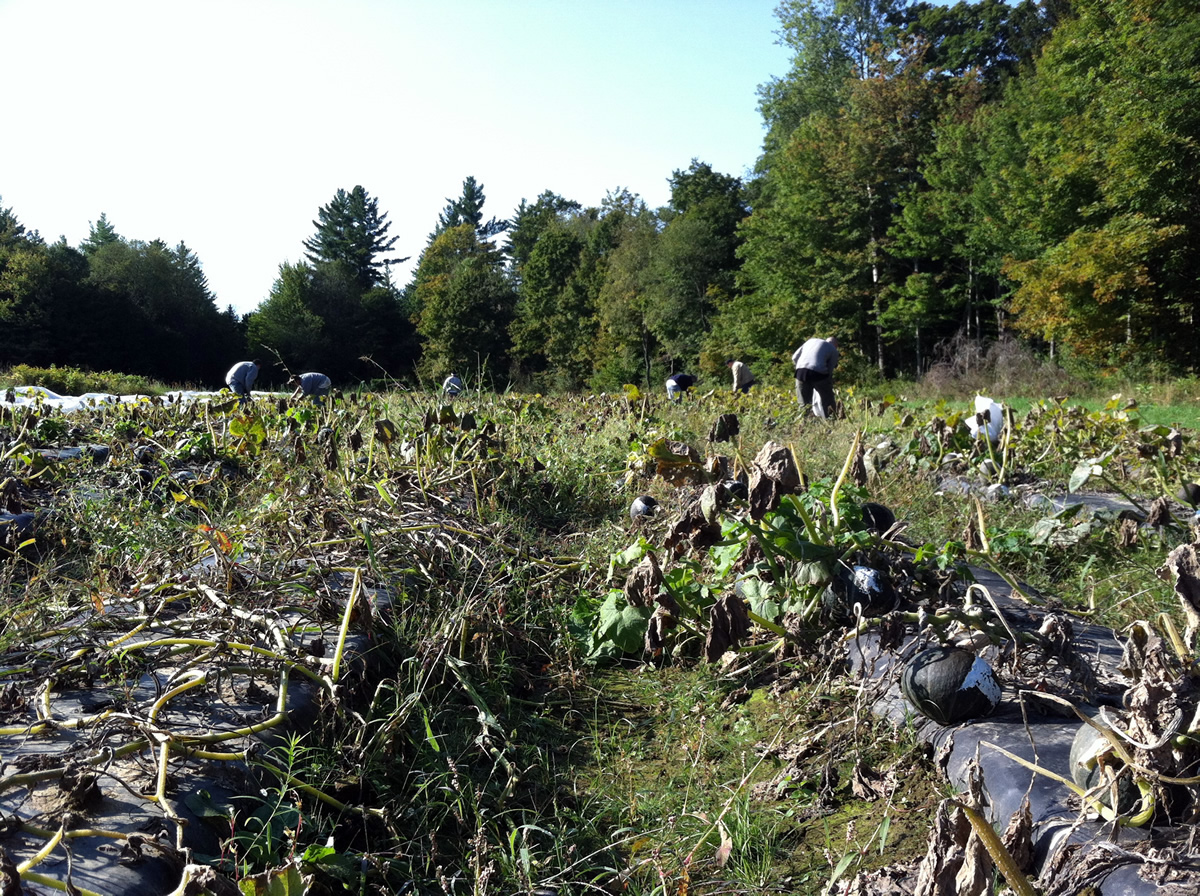In 2004, Theresa Snow was working at Pete’s Greens, a large organic farm in Vermont, when she was given the freedom to start her own program utilizing some of the farm’s resources. She organized college students to help glean crops the farm couldn’t sell and deliver those foods to sites in the community that were serving vulnerable populations, such as nursing homes and emergency food sites.
Salvation Farms doesn’t grow their own food, but they do glean food from farms throughout the area and partner with organizations to aggregate and minimally process so-called “unmarketable” food and deliver it to charitable and institutional food sites that aren’t typically accessing local foods. “We’re looking at the institutions that are financially and nutritionally insecure; nursing homes, veterans homes, prisons and possibly some of the schools.”

Salvation Farms operated under the fiscal umbrella of the Northeast Organic Farming Association of Vermont, but in 2011, Snow federally incorporated as an agricultural organization that looks at sustainable agriculture and resource management as a means to create more food system resilience in Vermont and the surrounding area. Her goal is to “engage eaters” that might feel excluded from the local food and farm movement. We involve them to reduce dependence on food sourced from out of state, while simultaneously building partnerships.
Salvation Farms oversaw a crew of incarcerated workers at Vermont’s Windsor Prison for three September–April seasons, and packed their last potatoes in April 2015. Snow cites a “perfect storm” of reasons the program shuttered, although the Vermont legislature is now strongly considering ways to make it work. Salvation Farms’s two-year contract was up for renewal the same time that the U.S. House of Representatives Committee on Appropriations proposed closing that facility for budget reasons. Salvation Farms met a fundraising goal to renovate the state building where the program was held.
“It was a challenge to run the program in the existing space,” Snow says. “We could do it, but it lacked a lot of the infrastructure to really run a successful, efficient program.”
When their contract expired, and talks with the Department of Corrections weren’t able to satisfactorily address all concerns, Snow opted not to pursue a temporary contract. In Vermont, the Department of Corrections is run by the state, so continuing the program would mean a significant investment in a facility and staffing.

“It just became very clear to me that this conversation was going to take much longer,” she says. “There is interest in the legislative body to figure out if the program has enough merit for the Department of Corrections to have a role. They’re intrigued. I think they thought there was a lot of merit in the program, and it certainly had a lot of positive impacts on the incarcerated population.”
From November 2012–April 2015, with the help of 50 inmates, Salvation Farms was able to clean, quality assess, case pack and deliver more than 270,000 pounds of produce, primarily potatoes, some apples, winter squash and a few small volumes of root vegetables gleaned and donated from 11 farms.
“Most of the inmates were grateful, it wasn’t glamorous, but some took great pride in the work once they settled in,” Snow notes. “These men were making a real, significant difference, together and individually, to the community outside the fence they were isolated from. When we said, ‘This pallet is going to go to this town,’ they could often say, ‘I’m from there, maybe my family is going to eat this food.'”



















